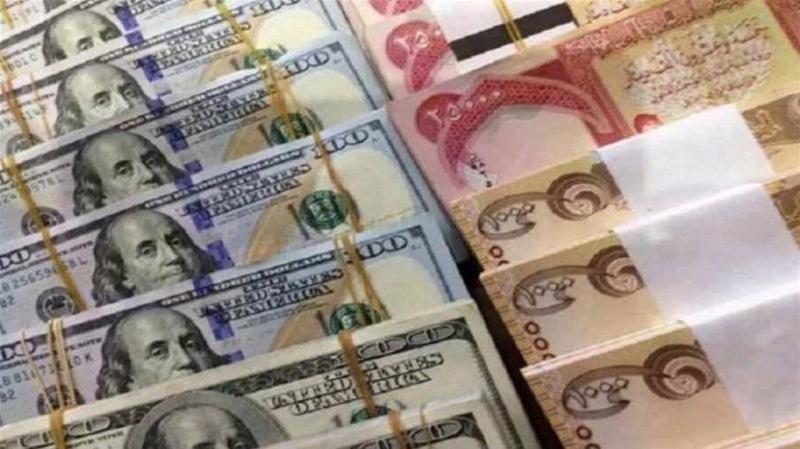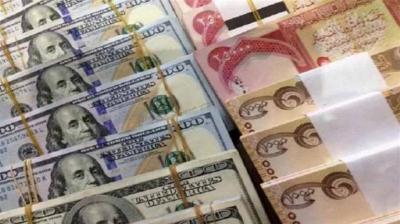Under the title "Between the Government and the Central Bank: Members of the Finance Committee Unveil the Secrets Behind the Rise of the Dollar," the Al-Sumaria website published a report addressing the exchange rate situation in Iraq. It noted that the exchange rate of the dollar against the dinar continues to cast shadows over both the social and political aspects. While a parliament member ruled out the possibility of reverting the exchange rate back to its previous levels during this phase, another emphasized that there is a lack of vision within the government and the central bank to address economic inflation. He indicated that there is a will and a majority within the House of Representatives that do not want to revert the exchange rate of the dollar against the dinar to what it was.
Member of the Parliamentary Finance Committee, Jamal Kougar, confirmed that there are many reasons preventing the Central Bank from returning to the old dollar exchange rate at this stage. He also pointed out that achieving this could create new job opportunities if a new government comes in for four years. Kougar stated in an interview with Al-Sumaria News, "There are many reasons preventing the Central Bank from returning to the old dollar rate at this stage,” explaining that “one of the reasons is the need for the bank to have a stable policy, considering that the price increase happened four months ago, and it is not permissible to have another change in a short period of no more than five months, as this would disrupt the market and worry investors, traders, and foreign currency dealers due to lack of trust in the potential for further changes by the Central Bank in the future."
Kougar added that "another issue is related to the federal budget that the parliament approved, which was built on the new exchange rate. Therefore, contracts awarded by the government will be in dinars. However, we are not a producing but an importing and consuming country, which means that the impact will be worrying for those dealing with the government regarding imports and contracts, as they do not have a clear picture of how to deal with the profit and loss calculations based on any price."
He pointed out that "such a gamble is something we do not believe the government will be compelled to undertake due to the disruption it would cause at this time, especially since it is a temporary government with a primary duty to prepare for early elections. However, if a new government is formed for four years, then it would be possible to conduct a comprehensive study to implement many measures, including changing the exchange rate and creating new job opportunities."
Parliamentary Finance Committee member Abdul-Hadi Mohan Al-Saadawi indicated that there is a lack of vision within the government and the central bank in addressing economic inflation. He noted that there is a will and a majority within the House of Representatives that do not want to revert the exchange rate of the dollar against the dinar to its previous level. Al-Saadawi stated in an interview with Al-Sumaria News that "there is a will and a majority in the House of Representatives that do not want to revert the exchange rate as it was, and are striving to maintain what was adopted by the Central Bank and the Ministry of Finance, due to the interests that those controlling the government and the Central Bank of Iraq have."
He added that "there is no vision among many political blocs or parties benefiting from changing the exchange rate; they are moving forward with raising the exchange rate and are also not implementing automation of the ports, customs, and fees.” He stressed that “the vision is absent within the government and the central bank for addressing the current inflation in the Iraqi economy and market."
He pointed out that "the program and the document prepared by the government, which was called the white paper, has not gone beyond being mere ink on paper, as the government or the Central Bank have not followed through on any promises they made for financial and economic reform. What has been implemented are superficial measures far removed from addressing the core economic issues." He noted that "the government has not released the three trillion dinars allocated for poverty alleviation in Iraq, and social welfare benefits have not been passed by the parliament. Therefore, the vision is absent, and reform is non-existent."




